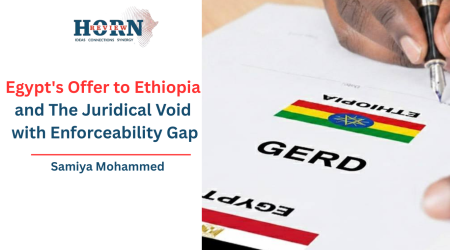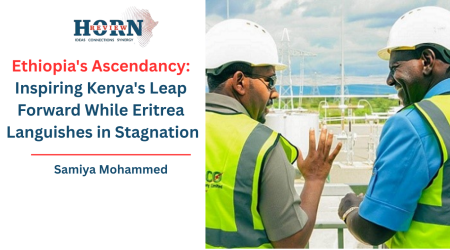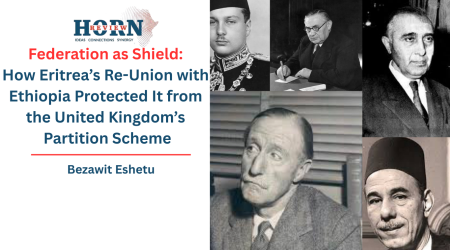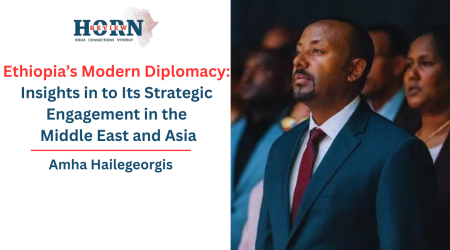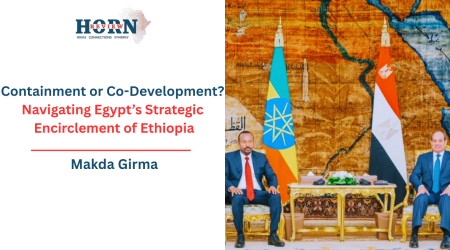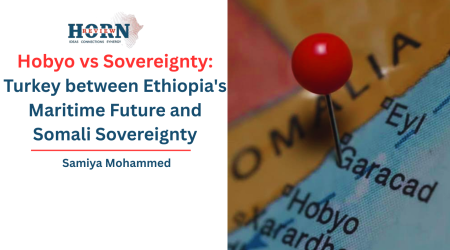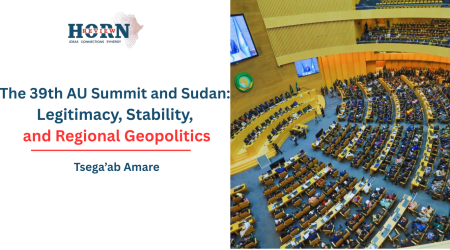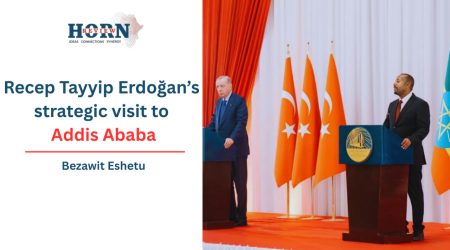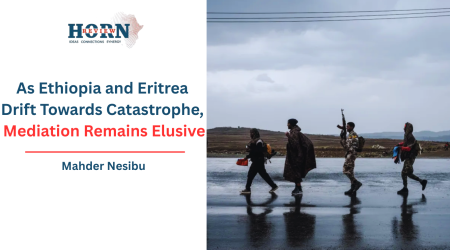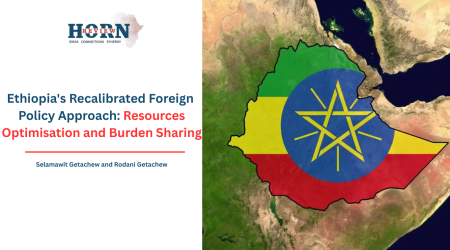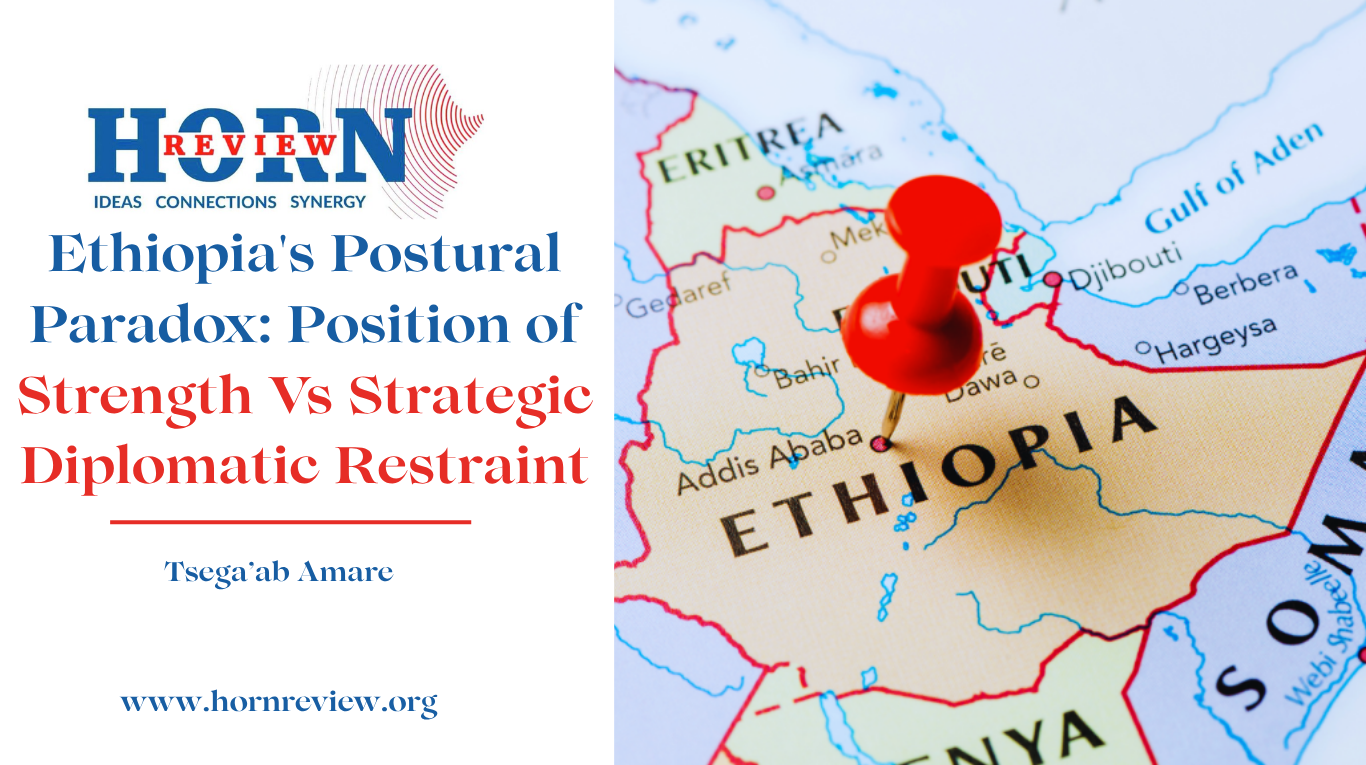
5
Nov
Ethiopia’s Postural Paradox: Position of Strength Vs Strategic Diplomatic Restraint
The diplomatic condemnation issued by the Ethiopian Embassy in Brussels on October 24, 2025, following the inaugural EU-Egypt Summit, was swift, principled, and understandably firm. It effectively addressed the injury caused by the Joint Statement, which appeared to endorse Egypt’s water security concerns regarding the Grand Ethiopian Renaissance Dam (GERD) and invoked problematic, historically loaded language regarding international law and the duty to “do no harm”. For this rapid defense of sovereignty, the response warrants credit.
However, a rigorous analysis of the condemnation’s tone reveals a profound strategic overreaction. By using highly adversarial rhetoric describing the European Union’s position as “deeply disappointing, biased, and invoking colonial undertones,” Ethiopia adopted a defensive posture that is strategically inconsistent with its current geopolitical reality. The nation now speaks from a position of material strength, not historical grievance. This aggressive deployment of diplomatic capital threatens to undermine the immense, hard-won progress recently made in restoring the historically long and vital EU-Ethiopia relationship.
The reaction following the EU-Egypt Joint Statement on October 22, 2025, reflects a sensitive interaction between a sovereign state and a major regional organization. Unlike a disagreement with a single country, engagement with the EU, a complex entity consisting of 27 Member States, the European Commission, and the European Council, requires coordination and consensus across multiple capitals. By directing its criticism broadly at the bloc, the condemnation risks alienating important bilateral investors and weakening high-value, mutually beneficial partnerships.
The stakes are far larger than a single clause referring to the Nile. The EU and Ethiopia share a relationship now spanning 50 years. Crucially, this partnership recently underwent an intensive period of repair following the cessation of hostilities in Tigray. During the conflict, the EU demonstrated its capacity for financial leverage by suspending nearly €90 million in development aid in December 2020, conditioning further assistance on humanitarian access and peace obligations. Following the Pretoria peace deal, the EU pivoted to reconciliation, culminating in a significant aid pledge of €650 million and the launch of the Global Gateway partnership.
This Global Gateway framework, solidified just weeks before the Nile dispute in October 2025, established strategic cooperation in critical, future-oriented areas such as Clean Energy Transition, Digital Transformation, and sustainable agri-food value chains, backed by a significant financial package.
The highly charged diplomatic response risks jeopardizing these newly secured strategic investments. By resorting to rhetoric suggesting deviation or undue frustration, Addis Ababa risks making the entire partnership appear unstable. This is the precedent Ethiopia must avoid: sacrificing long-term economic stability and security cooperation for a fleeting, defensive victory in a rhetorical scuffle. The frustration exhibited by the response is out of proportion to the minimal geopolitical cost of the single Nile clause.
The primary reason why the defensive posture is strategically obsolete is that Ethiopia has fundamentally reestablished the physical and legal reality of the Nile Basin. The completion and inauguration of the GERD on September 9, 2025, represents a fundamental fait accompli. The project, with its 5,150 MW power capacity, is operational and positions Ethiopia as an indispensable energy hub for the Eastern Africa Power Pool.
A nation that has materially succeeded in securing its core sovereign project should project confidence and authority, not grievance.
The GERD’s inauguration was attended by African Union and IGAD leaders, alongside presidents from key regional partners such as Kenya, Somalia, and South Sudan. This collective endorsement established the GERD not as a unilateral act, but as a shared African achievement. This peer legitimation significantly neutralizes Egypt’s narrative of illegitimacy in global forums.
Ethiopia’s legal position rests on modern international water law, specifically the principles of equitable and reasonable utilization and the duty not to cause significant harm, as codified in the Cooperative Framework Agreement (CFA) and the UN Convention on the Law of the Non-navigational Uses of International Watercourses (1997). By adhering to these universally accepted norms, Ethiopia’s legal defense remains superior to one based on obsolete, colonial-era allocations.
Given the material reality of the dam’s operation, the law on its side, and extensive regional peer support, Ethiopia commands parity of agenda-setting. There is no need for rhetoric that suggests victimhood or fear. Such language simply gives credibility to the downstream claim that Ethiopia is acting outside of modern legal boundaries, which is contradicted by its alignment with the CFA.
Avoiding the Binary Trap
Ethiopia’s mature diplomatic framework, often summarized as the “Tekeda Doctrine,” explicitly advises the nation to avoid compelling external powers into a binary choice between Ethiopia and Egypt. The goal is to establish Ethiopia as an indispensable partner whose exclusion carries strategic costs for the external power.
The EU-Egypt Summit, focused heavily on Mediterranean security, migration management, and conflict resolution, including the Gaza conflict, was a necessary geopolitical engagement for Brussels. The inclusion of the Nile clause was a predictable gesture to Cairo. By reacting with such forceful condemnation, Ethiopia essentially demanded that the EU choose, a move that is strategically short-sighted and risks favoring the more established security partner.
Instead of demanding rupture, Ethiopia’s forward policy must demonstrate its capacity to manage the GERD cooperatively and equitably, making its operation a regional benefit that serves the EU’s own objectives, such as energy integration and climate resilience under Global Gateway. The strategic focus must shift from defensively validating the right to build the dam to authoritatively demonstrating the nation’s capacity to manage it. This requires a measured, confident, and granular diplomatic approach that corrects the narrative without sacrificing the integrity of the crucial, long-term EU-Ethiopia relationship. Strategic prudence dictates that aggressive public confrontation is a cost that Addis Ababa, speaking from its new position of strength, can no longer afford.
Ethiopia’s new diplomatic challenge is not to defend its sovereignty, but to master its strength.
By Tsega’ab Amare, Researcher, Horn Review

